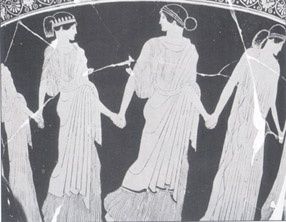… I guess it’s just me then.
I’m not interested in what Quora Inc. thinks about comments blocking; if Quora Inc. had its way, there would be no comments, and Quora certainly does not think comments are a big part of the desired user experience.
It seems a lot of users agree that Quora comment blockers should get to comment. Because:
- tit for tat blocking would only exacerbate the situation, and is retributive justice (Robin Corey, Koyel Bandyopadhyay)
- comment blockers should be given the benefit of the doubt as to why they block comments (Koyel Bandyopadhyay, McKayla Kennedy, Bart Loews), and should not be penalised as a group (Heather Jedrus): I don’t want anyone blocked (McKayla Kennedy)
- comments are not the proper venue for disagreement; answers or downvotes or reporting are (Koyel Bandyopadhyay, Amanda Glover, Craig Good); and as Quora keeps saying, comments aren’t encouraged, and Quora is not for debate (Jon Sanchez, Amanda Glover)
- comment blockers are intrinsically allowed to comment on others, because that’s what they want to do (Miguel Paraz, Jean-Baptiste Bertrand); block them if you don’t like it (Viktor Toth, Mohan Vanamalai, Cameron Williams, Lara Novakov, Marcus Sheldon Brandt)
- You can always engage with me in messages instead of comments (Viktor Toth, Mohan Vanamalai)
Only a few respondents acknowledged an inherent discomfort with comment blockers commenting (Cameron Williams, Marcus Sheldon Brandt, Heather Jedrus, Robin Corey)—including the two comment blockers themselves (Viktor Toth, Mohan Vanamalai).
Well, I would rather the option of disabling comments from comment-blockers, and I certainly decline upvotes to comment-blockers. Of course, Quora UI being what it is, I don’t get options—things are either on or off universally. So I will just continue to shun comment blockers.
- I have no interest in engaging in an anechoic chamber; if Quora killed comments (as they’d have preferred), I’d leave, and I’m sure I’m not the only one.
- It’s not just justice that’s retributive: morality is foundationally dependent on reciprocity. That’s the notion we call “fairness”.
- Comment blockers may have whatever motivation they want for blocking comments: but if they take away all possibility of reciprocity, they get no engagement from me, and I fundamentally mistrust any comments they leave for anyone.
- Bart Loews’ distinction is one I find specious: “This doesn’t mean that they’re refusing to advance conversation, often it’s just that they’ve received a disproportionate amount of hate and are looking to stem it off because they’re tired of deleting the same played out comments over and over again.” In doing the latter, they are also doing the former.
- If you think private messages are going to encourage more civility than publicly visible comments, and you encourage private message instead of comments… well, you have enough confidence in human nature, that I’m surprised you’re blocking comments at all.
- Reporting would assume that I have confidence and trust in Quora moderation.
- I have resorted to answers instead of comments once or twice, when I had enough to say to warrant a competing answer (or when the competing answerer saw fit to block me). Given how downgraded comments are, they are a necessary alternative, and I acknowledge the usefulness of a retorting answer rather than a bogged down debate in comments.



